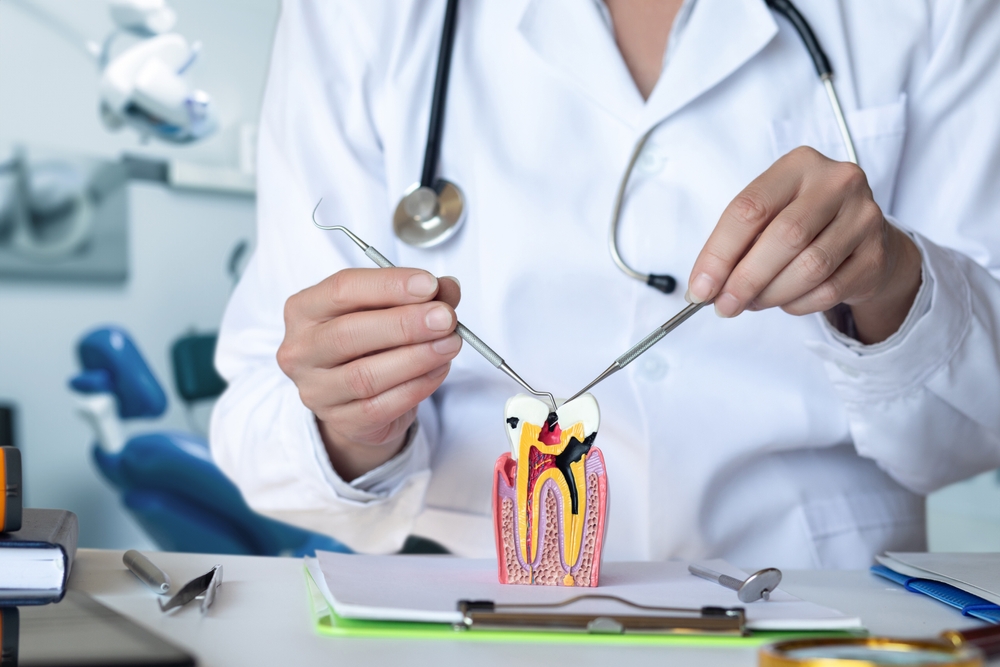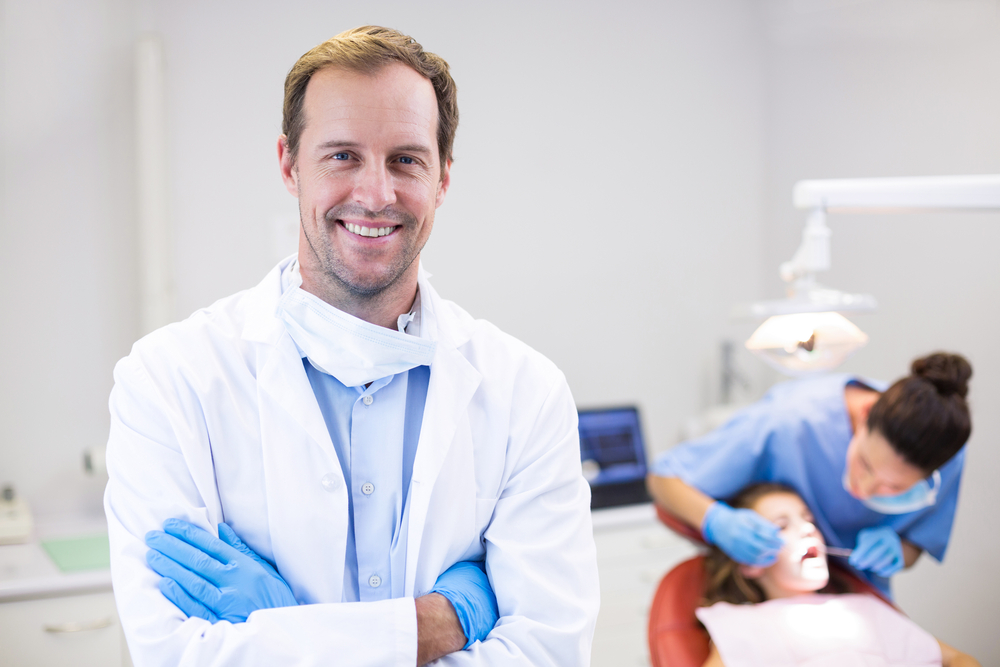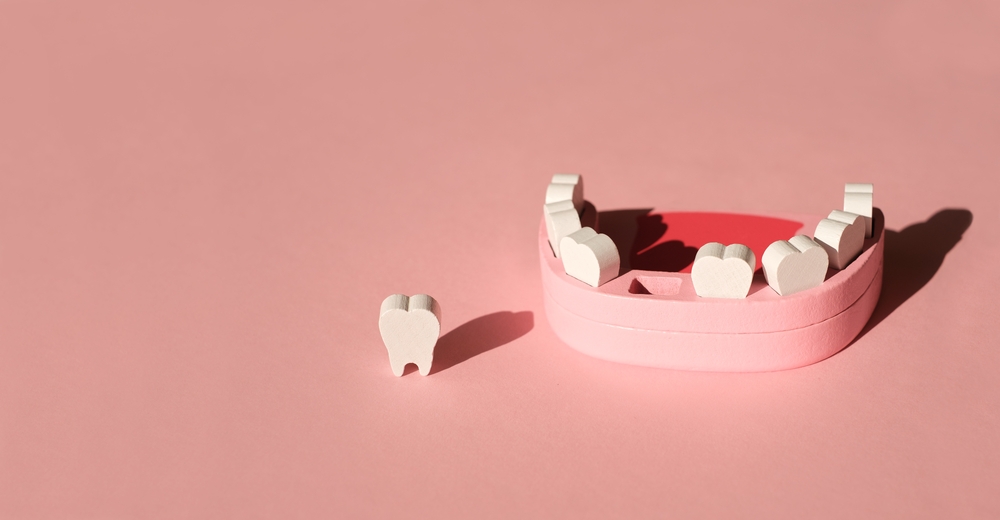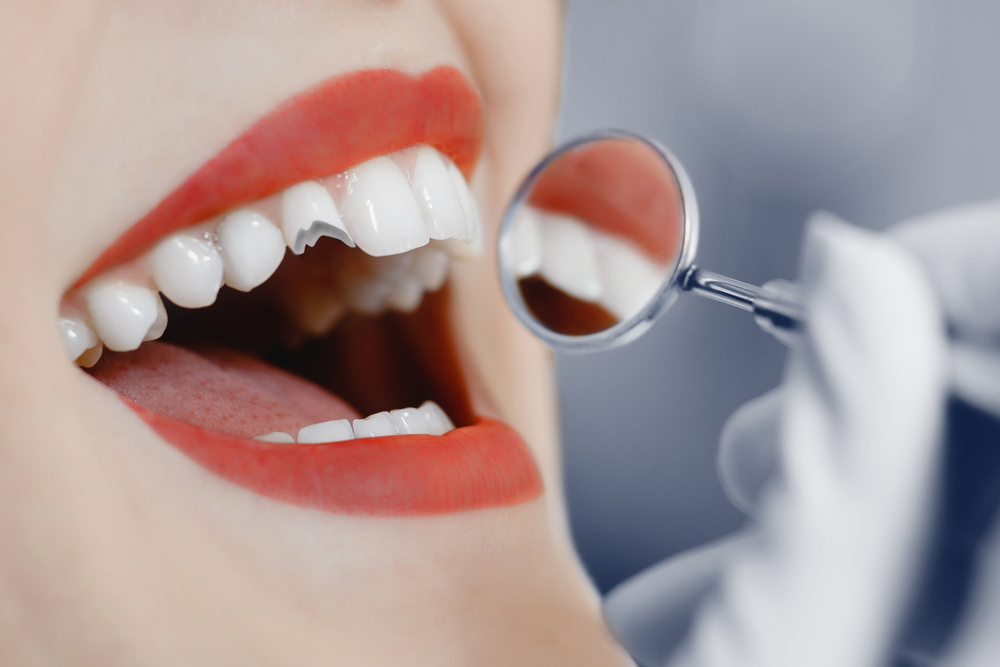1812 E. Broadway St.
Pearland, TX 77581
Root canal therapy represents one of dentistry’s most successful procedures for preserving natural teeth, performed by an endodontist, yet it remains surrounded by outdated myths and misinformation. Persistent misconceptions about root canal therapy often prevent patients from receiving timely care, leading to unnecessary tooth loss and more complex treatments.
At Pearland Dental Group, Dr. Rushi Dave and Dr. Mili Shah are committed to educating patients throughout Pearland, Pasadena, Fresno, and Alvin, TX, about the reality of modern endodontic treatment. Let’s examine the facts behind these myths and explore why root canal therapy remains one of the most effective treatments in modern dentistry for preserving your smile.
Read the helpful guide below or contact our Pearland, TX, dental practice at (281)993-9900 to learn more.
Pearland Dental Group stands out for root canal treatment thanks to the exceptional skill of Dr. Rushi Dave and Dr. Mili Shah, who have both completed extensive post-graduate training in endodontics and stay up-to-date with the latest techniques through continuing education.
Our advanced clinical skills, combined with state-of-the-art dental technology—such as digital radiography, rotary instrumentation, and advanced magnification systems—ensure precise diagnoses, efficient procedures, and optimal outcomes, even in complex cases. Our practice is committed to a comprehensive patient care philosophy, taking the time to understand your concerns, explaining every step, and ensuring your comfort throughout the process.
Conveniently located in the heart of Pearland and easily accessible from Pasadena, Fresno, Alvin, and surrounding communities, Pearland Dental Group offers flexible scheduling, including early morning and evening appointments, to accommodate busy professionals and commuters. We’re also close to fun and historic locations such as the Delores Fenwick Nature Center, Space Center Houston, & The Houston Zoo.
Dr. Dave and Dr. Shah are active members of the local community and understand the unique needs of Pearland families, building lasting relationships with both new and long-time residents. In addition, the practice provides prompt emergency care, often with same-day appointments, ensuring patients receive relief when they need it most.
The Reality: Modern root canal therapy is typically no more uncomfortable than receiving a large dental filling, thanks to advanced anesthetic techniques and pain management protocols. The outdated reputation for pain stems from decades-old procedures performed before contemporary anesthetics and refined techniques were available.
What Actually Happens: Dr. Dave and Dr. Shah utilize advanced local anesthetic delivery systems, including computer-controlled injection techniques that provide more comfortable administration and superior numbing effectiveness. Many patients report feeling nothing during the procedure itself, with most describing the experience as surprisingly comfortable. Most root canals are completed efficiently and comfortably in a single visit, thanks to modern techniques.
Post-Treatment Comfort: Any discomfort following treatment is generally mild and easily managed with over-the-counter anti-inflammatory medications. Most patients return to normal activities within 24 hours, experiencing significantly less discomfort than they had before treatment when dealing with infected pulp tissue. The relief from eliminating the tooth infection often outweighs any temporary post-treatment sensitivity.
Advanced Pain Management: Our practice employs multiple pain management strategies, including topical anesthetics, buffered local anesthetics, and, when appropriate, conscious sedation dentistry options to ensure maximum patient comfort throughout the procedure.
The Scientific Evidence: Extensive peer-reviewed research conducted over decades has consistently demonstrated no causal relationship between properly performed root canal therapy and systemic disease. There is no scientific evidence linking root canal treatments to illness or disease in other parts of the body. This myth originated from flawed early 20th-century research that has been thoroughly debunked by modern scientific methodology.
Understanding the Biology: The human body’s immune system effectively manages the minimal bacterial presence that might occur during any dental procedure, including routine dental cleanings. Root canal therapy actually removes bacteria from the infected tooth to prevent reinfection and protect overall health by eliminating infected tissue and sealing the tooth against future contamination.
Modern Sterilization Standards: Contemporary endodontic procedures follow strict infection control protocols, including rubber dam isolation, sterile instrumentation, and antimicrobial irrigation solutions that exceed medical-surgical standards. These protocols virtually eliminate any risk of bacterial dissemination during treatment.
Professional Medical Consensus: Major medical and dental organizations, including the American Association of Endodontists and the American Dental Association, strongly support the safety and efficacy of root canal therapy based on comprehensive scientific evidence.
The Long-Term Perspective: Preserving natural teeth should always be the primary goal when possible, as no artificial replacement can fully replicate the function, sensation, and biological integration of your original tooth. Natural teeth provide proprioceptive feedback that helps regulate bite force and maintain proper jaw function. In many cases, a tooth can be saved with timely root canal therapy, avoiding the need to have the tooth extracted.
Hidden Costs of Extraction: While extraction may seem like a simpler solution initially, the long-term consequences often require more complex and expensive treatments. Missing teeth can cause adjacent teeth to shift, create bite problems, and lead to bone loss in the jaw that may compromise future treatment options. If a tooth is extracted, replacing it with a dental implant, dental bridge, or partial denture is often necessary to restore function and prevent dental problems.
Replacement Challenges: Tooth replacement options like dental implants, dental bridges, or partial dentures require ongoing maintenance, may need periodic replacement, and often cost significantly more than root canal therapy over a patient’s lifetime. Additionally, these procedures may require modification of healthy adjacent teeth. It is important to replace missing teeth after extraction to maintain proper alignment and oral health.
Success Rates: Modern root canal therapy boasts success rates exceeding 95 percent when performed by skilled practitioners, with many treated teeth lasting a lifetime with proper care and maintenance.
Cost Analysis Reality: While root canal therapy requires an initial investment, it typically costs 30-50 percent less than tooth extraction followed by replacement with an implant, bridge, or partial denture. The immediate savings become even more significant when considering long-term maintenance costs.
Dental Insurance Coverage Advantages: Most dental insurance plans provide better coverage for root canal therapy compared to tooth replacement procedures, recognizing the conservative nature and long-term value of preserving natural teeth.
Preventing Future Expenses: Successfully treated teeth often require only routine maintenance rather than complex ongoing care, potentially saving thousands of dollars in future dental expenses. The investment in root canal therapy can prevent the need for multiple procedures that might be necessary if the tooth is lost.
Payment Options: Pearland Dental Group offers flexible payment arrangements and financing options to make essential treatment accessible, ensuring that cost concerns don’t prevent patients from receiving necessary care.
Structural Engineering Facts: Modern root canal therapy actually reinforces the tooth structure by removing diseased tissue and filling the space with biocompatible materials that provide internal support. The procedure eliminates the source of infection that was actively destroying tooth structure. After a root canal, a temporary filling may be placed to protect the tooth until a permanent restoration is completed, and further procedures such as crowns or onlays are often necessary to ensure long-term success.
Material Science Advances: Contemporary filling materials used for root canals, such as gutta-percha and bioactive sealers, provide excellent structural support while maintaining flexibility that closely matches natural tooth properties.
Protective Restoration Considerations: Any increased susceptibility to fracture typically relates to the extent of decay or previous damage rather than the root canal procedure itself. Proper restoration with dental crowns or dental onlays can actually make treated teeth stronger than they were before the infection occurred.
Long-Term Durability: Properly treated and restored teeth function normally for decades, with many lasting a patient’s entire lifetime when maintained with good oral hygiene and regular dental care.
Biological Understanding: While root canal therapy removes the pulp tissue (nerves and blood vessels) from inside the tooth, the tooth remains very much “alive” and functional. The tooth continues to receive nourishment from the surrounding periodontal ligaments and blood vessels in the jawbone.
Continued Function: Treated teeth maintain their ability to detect pressure and perform all normal functions, including chewing, speaking, and maintaining proper facial support. The absence of internal pulp tissue doesn’t affect the tooth’s structural integrity or daily function.
Natural Integration: Root canal-treated teeth continue to integrate normally with surrounding oral structures, maintaining their position and contributing to proper bite relationships throughout a patient’s lifetime.
Aesthetic Considerations: Modern root canal techniques and materials help maintain natural tooth color, and any minor discoloration can be addressed with professional teeth whitening or cosmetic procedures if desired.
Are you experiencing tooth pain from a dental infection? Call our Pearland, TX, dental office at (281) 993-9900 to speak with our team about root canal treatment.
Most root canal procedures can be completed in 60-90 minutes, though complex cases involving multiple canals or curved roots may require additional time. Dr. Dave and Dr. Shah prioritize thoroughness over speed, ensuring complete treatment rather than rushing through procedures. Some cases may require two appointments to achieve optimal results, particularly when dealing with persistent infections or complicated anatomy.
Recovery from root canal therapy is typically straightforward, with most patients experiencing minimal discomfort that peaks within 24-48 hours and gradually subsides. You may notice mild sensitivity when biting down, which usually resolves within a week. We recommend avoiding hard foods for the first few days and taking anti-inflammatory medications as directed to manage any discomfort.
Modern root canal therapy demonstrates a high success rate, with success rates of 85-97 percent over eight to 10-year periods when performed by experienced practitioners. Success depends on factors including the tooth’s condition before treatment, the patient’s oral hygiene, and the timely placement of permanent restorations. Many treated teeth last for decades with proper care.
Crown placement depends on the tooth’s location and remaining structure. Back teeth (molars and premolars) typically require crowns due to heavy chewing forces, while front teeth may only need filling restorations if sufficient tooth structure remains. Dr. Dave and Dr. Shah will discuss restoration options based on your specific situation.
While uncommon, root canal treatment can occasionally fail due to factors like incomplete cleaning of complex canal systems, new decay, or restoration problems. Failed treatments can often be successfully retreated using advanced techniques, though some cases may require surgical intervention or extraction with replacement.
Common signs include severe toothache when chewing or applying pressure, prolonged sensitivity to hot or cold temperatures, discoloration of the tooth, swelling and tenderness in nearby gums, or a persistent or recurring pimple on the gums. However, some infected teeth may not cause obvious symptoms, making regular dental examinations crucial for early detection.
The primary alternative to root canal therapy is tooth extraction followed by replacement with a dental implant, bridge, or partial denture. However, these options are typically more expensive, time-consuming, and may require treatment of adjacent healthy teeth. Some experimental treatments, like regenerative endodontics, are available for specific cases, particularly in younger patients.
Post-treatment care includes maintaining excellent oral hygiene, avoiding hard or sticky foods until permanent restoration is placed, and attending all follow-up appointments. Once permanently restored, treated teeth require the same care as natural teeth: regular brushing, flossing, and professional cleanings.
Don’t let outdated myths and misconceptions prevent you from receiving the dental care you need to preserve your natural smile. Root canal therapy represents one of dentistry’s most predictable and successful treatments, offering an excellent opportunity to save your natural tooth while maintaining optimal oral health.
At Pearland Dental Group, our Pearland, TX, dentists near you are committed to providing comprehensive dental services, accurate information, and exceptional care throughout your treatment experience. Serving patients from Pearland, Pasadena, Fresno, Alvin, and the greater Houston area, we offer prompt emergency dental care when needed and are here to answer your questions and address any concerns you may have about endodontic treatment.
Take the first step toward preserving your natural smile by calling (281)993-9900 today to schedule your consultation and learn how modern root canal therapy in Pearland, TX, can help you meet your dental needs and maintain optimal oral health for years to come.







Our clinic offers all kinds of services and constantly study new
technology to add new custom services to the list
Phone: (281)993-9900
Address: 1812 E. Broadway St. Pearland, TX 77581
Copyright © 2021 Pearland Dental Group | Managed by Now Media Group